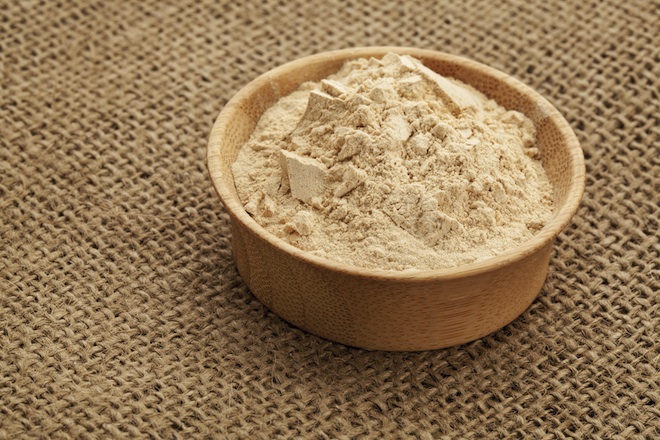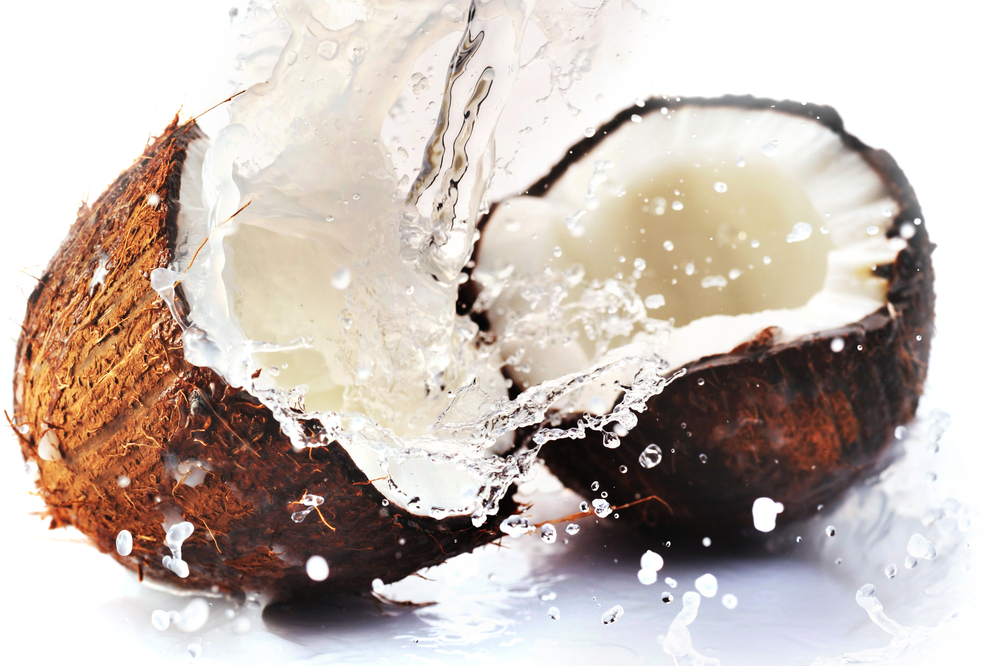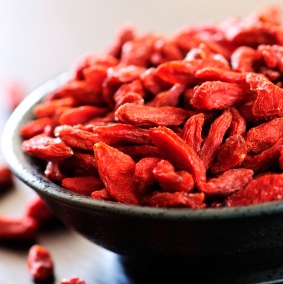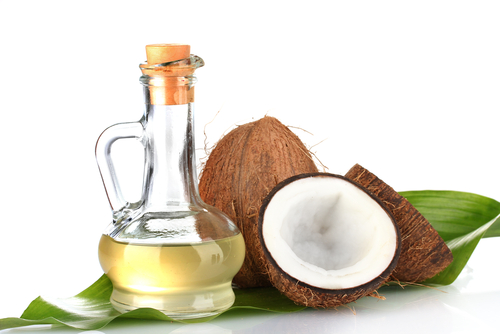Like Pauline, I love and consume all these products at least a few times a week...you can incorporate them into your daily life very easily, in meals or desserts.
By Pauline Hanuise
Discovering superfoods has changed my life and was one of my first steps towards my recovery from eating disorders, and becoming healthier and happier. Now, I have them every day and that's helping me to stay healthy and have great energy.
But what are superfoods, exactly?
Superfoods
are basically foods that are much richer in vitamins, minerals,
nutrients, electrolytes and phytonutrients, but also much poorer in
calories than any other usual foods. They nourish your body on a very
deep level.
Here are my 8 favorite superfoods to boost you mood and energy levels:
1. Maca powder
Maca
is a root that comes from Peru. You will mainly find it as powder
because it doesn’t grow in all climates So, it is dried and powdered to
be exported in the rest of the world.
 Maca
is amazing for balancing hormones and is beneficial to both women
(relief of PMS symptoms and menopause) and men (enhanced fertility).
Maca is also a great adaptogen that helps decrease stress levels,
enhance strength, stamina and libido as well as providing great energy
and endurance. It works with the rhythms and needs of your own body.
Maca
is amazing for balancing hormones and is beneficial to both women
(relief of PMS symptoms and menopause) and men (enhanced fertility).
Maca is also a great adaptogen that helps decrease stress levels,
enhance strength, stamina and libido as well as providing great energy
and endurance. It works with the rhythms and needs of your own body.
Maca is rich is calcium, phosphorus, magnesium,
potassium, vit B1, B2, C, E and iron. It contains lots of trace
minerals like zink and selenium and is great for menstrual imbalances,
lack of libido, infertility, menopausal symptoms and stress but also for
conditions such as anemia, fatigue, depression, poor memory,
tuberculosis and malnutrition.
I usually add maca powder to my breakfast muesli, smoothies, juices, chocolate, desserts, etc.
Try adding maca into your diet and notice the benefits. (You can find more recipes here.)
2. Pure, raw organic cacao
YES,
chocolate is a superfood! But I am not talking about the sugary,
packaged chocolate bars you find at the supermarket. I'm talking about
the real, original, raw, pure cacao.
You can use the beans, which are quite bitter or you can find it in
powder in any health food store to make amazing desserts like my
wonderful Love Chocolate Pie or Sour Cherry Fudge.
Pure, raw, organic cacao
is just amazing and to be honest, I am enjoying it every single day in
healthy, sugar free desserts or smoothies. Because what's bad about
chocolate? It's actually sugar, dairy and other additives that have been
added to packaged chocolate you buy in supermarkets.
Cacao
itself is great for your health and is nature's number-one weight loss
and high energy food, according to David Wolfe, the cacao master (watch
his TEDx talk about chocolate here).
Chocolate
is rich in antioxidants, magnesium, iron, chromium, manganese, zinc,
copper, vit-C, phosphorus and more. It's also rich in tryptophan, which
is a powerful mood-enhancer, crucial in the production of serotonin,
which diminishes anxiety and has the same impact as love in our brain.
That's why chocolate is often associated with love and Valentin's day.
Add more raw, pure and organic cacao into your diet and start feeling amazing effects.
3. Chia seeds
Chia
seeds are a complete protein rich in fiber, potassium, calcium, iron,
phosphorus and manganese. Just one tablespoon of chia seeds contains 5
grams of fiber. So adding a tablespoon of chia seeds to your breakfast
(cereals, smoothies, juices, etc.) is a great way to increase your fiber
intake.
But chia seeds are also very rich in
vitamin C, Omega 3 and 6 and antioxidants. They absorb lots of water
(about 10 times their weight). When you soak chia seeds, they will
absorb lots of liquid and create a gelatine-like substance, which will
clean your digestive and immune systems by moving all the toxins and
impurities to the bowels.
Soaking chia seeds in
coconut water or mashed fresh fruit for breakfast is great and chia
puddings are also delicious and great for your health.
4. Coconut (water, flesh/meat, oil and butter)
This
is one of my favorite foods and drinks ever. The water inside the young
coconut is an isotonic drink full of electrolytes and can even be used
in blood transfusions. It is rich in potassium, is ideal for proper
rehydration and has strong antiviral properties.
 It
also contains kinetin, which keeps the coconut young despite the fact
that it's under the sun all day long. Kinetin has the exact same effect
on our body and keeps you young.
It
also contains kinetin, which keeps the coconut young despite the fact
that it's under the sun all day long. Kinetin has the exact same effect
on our body and keeps you young.
(Amazing isn't it?)
Coconut
meat is high in protein and fiber and is a great saturated fat
(essential to our body). It's been proven that the saturated fat in
coconut oil supports the immune system, thyroid gland, nervous system
and skin.
Coconut oil
and butter are also a very healthy saturated fat and are perfect for
cooking as it's the only oil/butter that stays stable when you heat it
(even olive oil is not perfectly stable when you heat it). Thus, using
coconut oil for cooking is much safer and healthier than any other oils.
Personally,
I only use coconut oil for cooking. I still use olive, hemp and flax
oil, which are all amazing oils, but only for dressings. I also use coconut oil on my skin, as moisturiser as coconut oil is actually a top beauty product... and at a very cheap price!
5. Spirulina
Spirulina
is a Blue-Green Algae, which thrives in alkaline lakes. It contains
over 65% of complete protein (300% more than fish, meat or poultry, with
0 cholesterol). Spirulina is also very rich in chlorophyl, iron (about
58 times more than spinach), antioxydants, beta-carotene and essential
fatty acid Omega 3 and 6.
Spirulina really
helped me to have more strength and energy to recover from bulimia. It
also fixed my anemia and I was able to get rid of my unnatural iron
supplements.
Today, I am taking 3 to 6 grams of
spirulina every morning. You can choose to use powder - which is the
most powerful way as it's directly absorbable by your body - and add it
to your juices and smoothies. If you don't juice or blend every day, you
can use tablets (I personally find that the taste is too strong to mix
spirulina powder with water only). You can change your dosage regarding
your levels of energy, activity and your diet.
Spirulina is also great for people who have digestive issues as it helps improving the absorption of nutrients by your body.
As
you can see, I love spirulina and I really recommend you to give it a
try. I am pretty sure you will notice great improvements in your energy
in just a few days ;)
6. Goji berries
Goji berries are a berry-fruit found in Asia and America. They are usually dried before being exported elsewhere in the world.
 Gojis
are probably one of the most nutritious berry-fruit found on the
planet. They are a complete source of protein and amino acids, contain
lots of trace mineral as well as vit B1, B2, B6, E and C. They are
extremely rich in antioxidant,
which protects you from the ageing process and free radical. They are
also well-known to improve vision, boost libido, sexual function and
immune system. Sounds great, right?
Gojis
are probably one of the most nutritious berry-fruit found on the
planet. They are a complete source of protein and amino acids, contain
lots of trace mineral as well as vit B1, B2, B6, E and C. They are
extremely rich in antioxidant,
which protects you from the ageing process and free radical. They are
also well-known to improve vision, boost libido, sexual function and
immune system. Sounds great, right?
You can consume them in many different ways. Add them to your smoothies, breakfast, salads or use them in your trail mix or in your awesome chocolate desserts ;)
7. Hempseeds and oil
Hempseeds
and oil are one of the rare complete source of protein (33% to 37% of
its weight) and are packed with life-force energy and enzymes. They are
rich in Omega-3, 6 and 9 which are all very important for brain
functions and considered a quality beautifying oil.
Hempseeds and oil are great to boost your immune system and bring balance in your essential fatty
acids,
thus are also decreasing inflammation. They deliver a balanced array of
amino acids and are rich in minerals such as phosphorous, potassium,
magnesium, calcium, iron, manganese, zinc, sodium, silicon, copper and
many others.
Use the oil in in your dressings and sprinkle the seeds on your cereals, fruits, smoothies or salads, they are delicious!
8. Flaxseeds and oil
Flaxseeds
(or linseeds) and their oil are one of the richest source of Omega-3
fatty acids. Omega-3 fatty acids are essential for our health as our
body doesn't produce them on its own. The problem in our societies is
that the big majority of people consume too much Omega-6 fatty acids and
not enough Omega-3. However, the balance between both is absolutely
vital to be healthy. Flax seeds and oil is one of the rare food that
contains Omega-6 and 3 (EFAs - essential fatty acids) in perfect balance
for the human body.
EFTAs are vital for brain
function, energy production, oxygen transfer and strengthen immunity.
Omega-3 fatty acids help to fight and prevent inflammation and many
degenerative conditions such as heart disease, high blood pressure,
strokes, etc .
They are many other superfoods
great to try and add to your diet such as acai, bee products (bee
pollen, royal jelly, honey and propolis), marine phytoplankton, aloe
vera, wheatgrass or any seaweed, but here are the ones I am using the
most to boost my mood and enrgy levels!



 Maca
is amazing for balancing hormones and is beneficial to both women
(relief of PMS symptoms and menopause) and men (enhanced fertility).
Maca is also a great adaptogen that helps decrease stress levels,
enhance strength, stamina and libido as well as providing great energy
and endurance. It works with the rhythms and needs of your own body.
Maca
is amazing for balancing hormones and is beneficial to both women
(relief of PMS symptoms and menopause) and men (enhanced fertility).
Maca is also a great adaptogen that helps decrease stress levels,
enhance strength, stamina and libido as well as providing great energy
and endurance. It works with the rhythms and needs of your own body. It
also contains kinetin, which keeps the coconut young despite the fact
that it's under the sun all day long. Kinetin has the exact same effect
on our body and keeps you young.
It
also contains kinetin, which keeps the coconut young despite the fact
that it's under the sun all day long. Kinetin has the exact same effect
on our body and keeps you young.  Gojis
are probably one of the most nutritious berry-fruit found on the
planet. They are a complete source of protein and amino acids, contain
lots of trace mineral as well as vit B1, B2, B6, E and C. They are
extremely rich in
Gojis
are probably one of the most nutritious berry-fruit found on the
planet. They are a complete source of protein and amino acids, contain
lots of trace mineral as well as vit B1, B2, B6, E and C. They are
extremely rich in  We've all heard about the power of
We've all heard about the power of 












